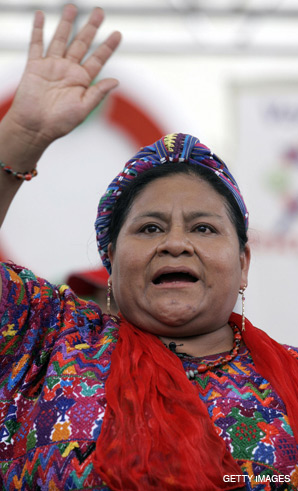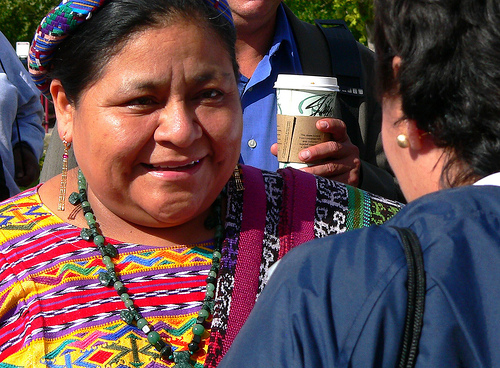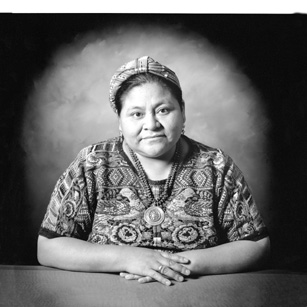

Imagine how tortured Menchú must have felt when beholding the struggles of her people, including her own family members. After looking on in horror and righteous indignation, she knew that she had to act for the sake of their liberation from oppression during the Guatemalan Civil War, which lasted from 1960 to 1996. Continuing the resistance effort put forth by her father, Menchú participated in many social reform activities that were carried out by the Christian Church, a source of solace for the many people who were suffering. At an age where most of us are trying to do our best in school, Menchú as a young teenager became part of and advocated strongly for a women’s movement. At the age of twenty, she joined the Committee of the Peasant Union (CUC), an organization that her father had actively participated in. With time, Menchú gradually assumed leadership in her community and became the head of the CUC. In 1980, she fiercely roused her compatriots and helped to lead a strike against the government in order to ameliorate the conditions for farm workers on the Pacific Coast. On May 1, 1981, she was a prominent figure in the large demonstrations that her people carried out on the capital.
Menchú also joined a radical organization known as the 31st of January Popular Front, in which her primary and most crucial role was to educate the Guatemalan Indian peasant population about their plight and their position against military oppression. Her passionate lectures enlightened the minds of her listeners and ultimately gave them a stronger voice with which they would make their opinions clear. It was also in this same year, 1981, that Menchú was forced into hiding in Guatemala, and when that too proved dangerous, she was compelled against her will to flee to Mexico. Although she could no longer help her people from within her native land, Menchú vowed that she would find an alternate way to aid her struggling people.


At this point, Rigoberta Menchú, age 22, began a new phase of her life and activism: this extraordinary woman now began to secure international attention as she brought to light the plight of her Indigenous Mayan people. She became an organizer abroad of resistance to oppression in Guatemala and the struggle for Indian peasant people’s rights. In 1982, she, along with other colleagues, founded The United Representation of the Guatemalan Opposition (RUOG), whose primary goal was to spread awareness and gain support for the resistance movement. The advent of this organization started a whole new round of activism worldwide.

The following year, Menchú related her life’s story and her people’s plight to Elisabeth Burgos Debray, and I, Rigoberta Menchú, was released. This novel won her international acclaim and gave support to her candidacy for the 1992 Nobel Peace Prize. In addition, in 1987, Menchú narrated for a powerful film entitled When the Mountains Tremble. This film documents the lives and struggles of the Mayan people living in Guatemala, and Menchú’s personal narrative adds an emotional touch and appeals to people all over the world for compassion and aid. To one viewing the film, the horrors depicted as native protestors are being beaten to the ground are etched forever in the mind as memories of the crime of oppression. Since these events, Menchú has attempted to return to her native land at least three times to advocate for her people’s rights, yet continuous threats have brought her back to exile. Nevertheless, although she isn’t physically present with her people, Menchú is continuing her activism throughout the entire Western Hemisphere. If you are fortunate enough to be able to witness Menchú giving a lecture, you shall surely be moved by the way her voice rises in passion as she speaks lovingly of freedom from oppression and her native homeland.